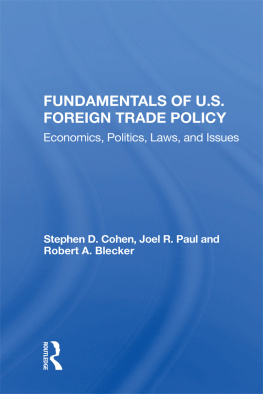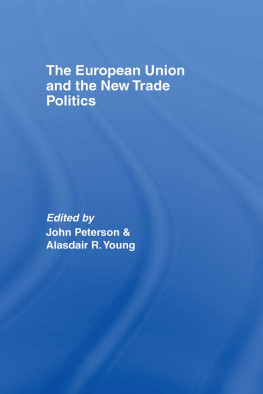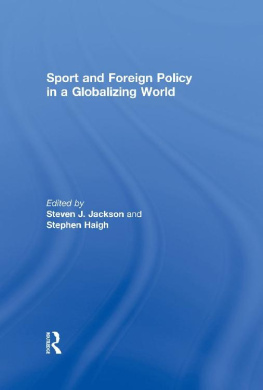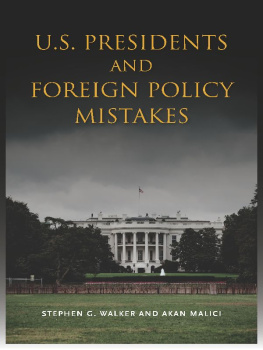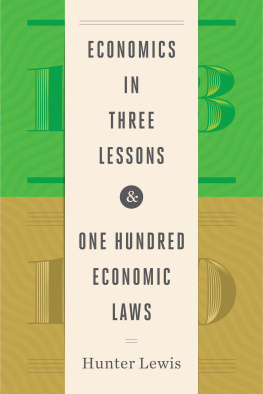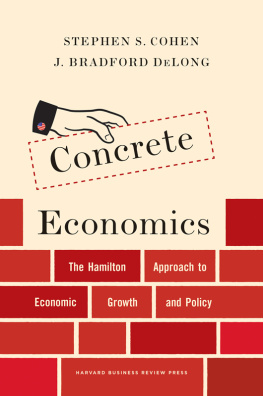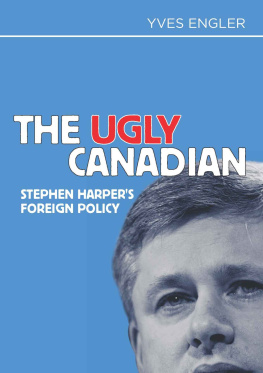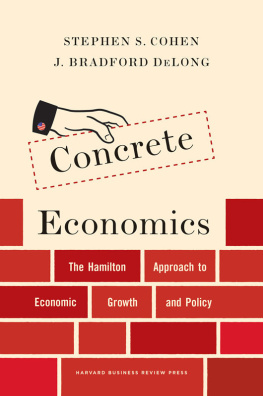Stephen D. Cohen - Fundamentals of U.s. Foreign Trade Policy: Economics, Politics, Laws, and Issues
Here you can read online Stephen D. Cohen - Fundamentals of U.s. Foreign Trade Policy: Economics, Politics, Laws, and Issues full text of the book (entire story) in english for free. Download pdf and epub, get meaning, cover and reviews about this ebook. year: 1995, publisher: Westview Press, genre: Politics. Description of the work, (preface) as well as reviews are available. Best literature library LitArk.com created for fans of good reading and offers a wide selection of genres:
Romance novel
Science fiction
Adventure
Detective
Science
History
Home and family
Prose
Art
Politics
Computer
Non-fiction
Religion
Business
Children
Humor
Choose a favorite category and find really read worthwhile books. Enjoy immersion in the world of imagination, feel the emotions of the characters or learn something new for yourself, make an fascinating discovery.
- Book:Fundamentals of U.s. Foreign Trade Policy: Economics, Politics, Laws, and Issues
- Author:
- Publisher:Westview Press
- Genre:
- Year:1995
- Rating:3 / 5
- Favourites:Add to favourites
- Your mark:
- 60
- 1
- 2
- 3
- 4
- 5
Fundamentals of U.s. Foreign Trade Policy: Economics, Politics, Laws, and Issues: summary, description and annotation
We offer to read an annotation, description, summary or preface (depends on what the author of the book "Fundamentals of U.s. Foreign Trade Policy: Economics, Politics, Laws, and Issues" wrote himself). If you haven't found the necessary information about the book — write in the comments, we will try to find it.
Stephen D. Cohen: author's other books
Who wrote Fundamentals of U.s. Foreign Trade Policy: Economics, Politics, Laws, and Issues? Find out the surname, the name of the author of the book and a list of all author's works by series.
Fundamentals of U.s. Foreign Trade Policy: Economics, Politics, Laws, and Issues — read online for free the complete book (whole text) full work
Below is the text of the book, divided by pages. System saving the place of the last page read, allows you to conveniently read the book "Fundamentals of U.s. Foreign Trade Policy: Economics, Politics, Laws, and Issues" online for free, without having to search again every time where you left off. Put a bookmark, and you can go to the page where you finished reading at any time.
Font size:
Interval:
Bookmark:
The American University
Joel R. Paul
University of Connecticut
Robert A. Blecker
The American University

52 Vanderbilt Avenue, New York, NY 10017
2 Park Square, Milton Park, Abingdon, Oxon OX14 4RN
Product or corporate names may be trademarks or registered trademarks, and are used only for identification and explanation without intent to infringe.
Cohen, Stephen D.
Fundamentals of U.S. Foreign trade policy: economics, politics,
laws, and issues / Stephen D. Cohen, Joel R. Paul, Robert A.
Blecker.
p. cm.
Includes bibliographical references and index.
ISBN 0-8133-1746-0. ISBN 0-8133-1747-9 (pbk.)
1. United StatesCommercial policy. 2. Free tradeUnited
States. 3. Foreign trade regulationUnited States. 4. United
StatesForeign economic relations. I. Paul, Joel R. II. Blecker,
Robert A., 1956. III. Title.
HF1455.C5758 1996
382.30973dc20 95-37934
CIP
- xvii
- Tables
- Boxes
- Figures
Font size:
Interval:
Bookmark:
Similar books «Fundamentals of U.s. Foreign Trade Policy: Economics, Politics, Laws, and Issues»
Look at similar books to Fundamentals of U.s. Foreign Trade Policy: Economics, Politics, Laws, and Issues. We have selected literature similar in name and meaning in the hope of providing readers with more options to find new, interesting, not yet read works.
Discussion, reviews of the book Fundamentals of U.s. Foreign Trade Policy: Economics, Politics, Laws, and Issues and just readers' own opinions. Leave your comments, write what you think about the work, its meaning or the main characters. Specify what exactly you liked and what you didn't like, and why you think so.

